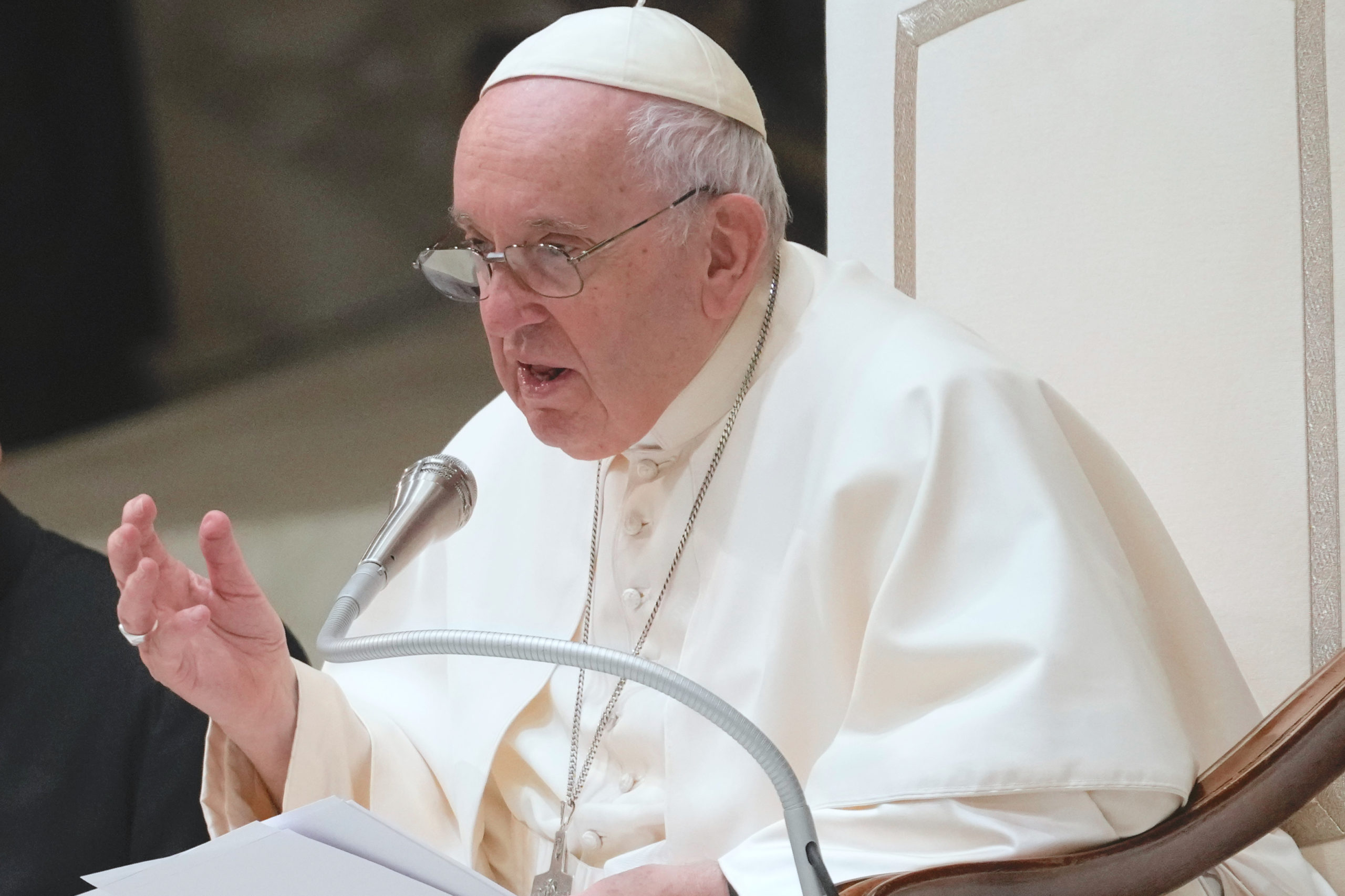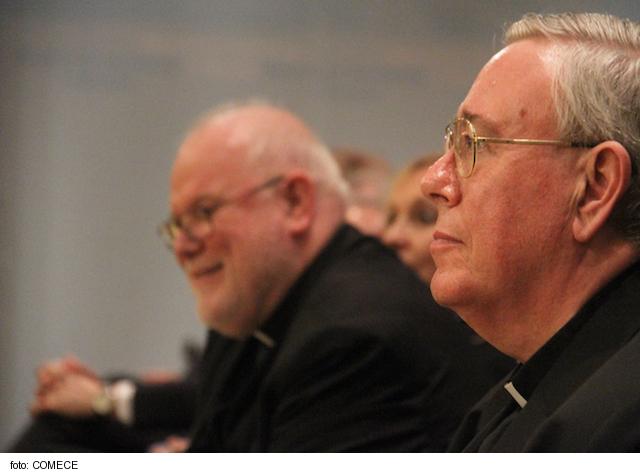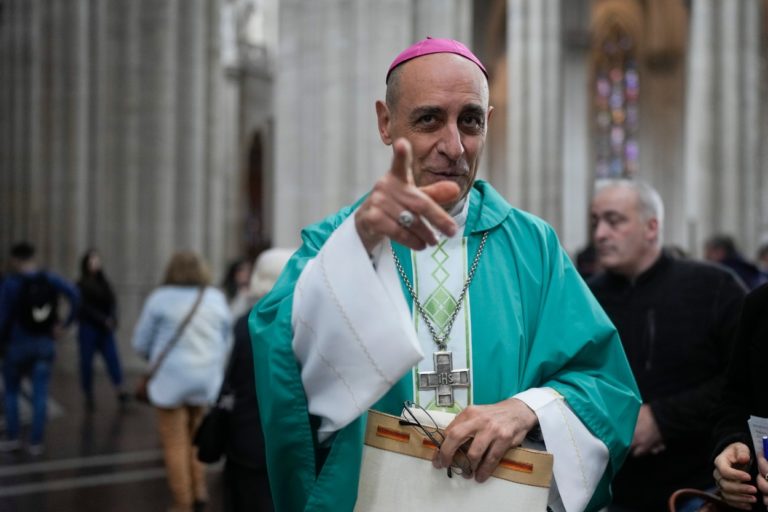Skip to content
Pope Francis did not propose blessing same-sex unions but did not say a clear no either.
Pope Francis does not propose to bless same-sex unions. However, his answer to this question raises more questions than it offers solutions.
Media worldwide are making headlines about Pope Francis’s proposal to bless same-sex unions. The Pope is not saying any such thing, and his words are taken out of context. Paradoxically, the mentioned media also have part of the truth. How is it possible?
Controversial Synod on Synodality
To understand what is happening, it is necessary to know the context in which the Pope’s statements were made. The whole situation is related to the Synod on synodality. Its final phase, which will bring bishops worldwide (and for the first time also women and lay people), begins on Wednesday.
The synod itself has been taking place since 2021 and is accompanied by many controversies, which are taking place mainly in Western Europe and America. It is often discussed in connection with the acceptance of homosexual marriages, the canonization of women, or other changes in the church doctrine. Therefore, a significant part of the faithful and several bishops fear that the synod is not a sincere effort for dialogue but rather an attempt to change Catholic teaching.
The last few days’ events testify that these doubts are indeed severe. On Monday, just two days before the beginning of the final phase of the synod, the five cardinals published the text of the five questions they sent to Pope Francis on July 10, precisely in connection with the synod.
Dubai
The so-called dubia, as such questions are called, were sent to Francis by German Cardinal Walter Brandmüller, American Cardinal Raymond Burke, Chinese Cardinal Joseph Zen Ze-Kiun, Mexican Cardinal Juan Sandoval Íñiguez, and Guinean Cardinal Robert Sarah. The questions related to the development of doctrine, the blessing of same-sex unions, the Synod’s authority on synodality, the ordination of women, and holy confession, specifically the absolution given by the priest during admission.
The cardinals above published their questions on Monday, just two days before the start of the final phase of the synod, but still need to show the Pope’s answers.
They defended their move by saying that Francis did not answer questions with the traditional yes or no but with developed answers. The cardinals, therefore, reported that on August 21, they sent the Pope reformulated questions that encouraged more apparent yes-or-no answers.
So, the public saw only the cardinals’ original questions on Monday, a brief commentary on the Pope’s answers, and a reformulated wording of the questions. Their output can be read in English, for example, here.
Of course, the question regarding the blessing of homosexual unions resonated most strongly in the world. In it, the Pope writes that “the Church has an evident conception of marriage: an exclusive, stable and indissoluble union between a man and a woman, naturally open to the procreation of children. He calls this union “marriage.” Other forms of union realize it only “partially and analogously” (Amoris Laetitia, 292) and therefore cannot strictly be called “marriage.”
He adds, “For this reason, the Church avoids any rites or sacraments that could contradict this belief and give the impression that something that is not marriage is recognized as marriage.”
But then the tone of the answer changes to less definite. The Pope continues: “However, in dealing with people, we must not lose pastoral love, which must permeate all our decisions and attitudes. The defense of objective truth is not the only manifestation of this love, which also consists of kindness, patience, understanding, tenderness, and encouragement. That is why we cannot become judges who only deny, reject, exclude.”
“For this reason, the pastoral balance must adequately distinguish whether there are forms of blessing requested by one or more persons that do not spread the wrong idea of marriage. When a blessing is requested, a request for help from God is expressed, a request for a better life, trust in the Father who can help us live better,” the pontiff continues.
In conclusion, he adds, “Decisions that may be part of pastoral prudence in certain circumstances should not necessarily become the norm. It is inappropriate for a diocese, bishops’ conference, or any other church structure to constantly and officially approve procedures or ceremonies for all kinds of matters.”
Canonical law should not and cannot cover everything, nor should episcopal conferences claim to do so with their various documents and protocols, because the life of the Church takes place in many other ways in addition to normative channels,” the pontiff concludes his answer. The full text of the questions and the Pope’s answers in Czech can be read here.
It won’t solve the problems.
Three things can be gleaned from his answer. The first is that the Pope clearly says that the church should only bless marriages. Second, in individual cases, it allows the possibility to bless a homosexual couple as well. And the third, that he would not elevate it to official practice.
Although it may look acceptable at first glance, it seems that it will not solve the problems in the church, but on the contrary, it will deepen it even more.
In Germany and Belgium, blessing homosexual couples is no longer just a matter for a few priests. Still, in many cases, it is a practice that is also approved by diocesan bishops, who even organize mass blessings of such couples. These priests and bishops will rely mainly on the second part of the words of Pope Francis and will present the blessing of homosexual couples as a manifestation of “pastoral prudence.”
It will be possible to guess from the headlines of the liberal media that many believers, priests, high-ranking bishops, and cardinals harbor hopes for a change of course in the Catholic Church. One of them is Cardinal Fernandez, the new prefect of the Dicastery for Doctrine. He said he “doesn’t smell Francis” in his predecessor’s document, which officially confirmed in 2021 that the church cannot bless homosexual unions.
Today, when Francis communicates through Fernández that he can imagine such a blessing in some cases, the enthusiastic media presents it according to the template that several leading representatives of the Synod have been living in them for a long time about synodality as a shift. And they are correct. Because until now, the Vatican has said a clear no to such practices.
The problem with the whole situation is that this way, the division in the church will deepen even more.
Visitors counter: 134
This entry was posted in
Nezaradené. Bookmark the
permalink.



